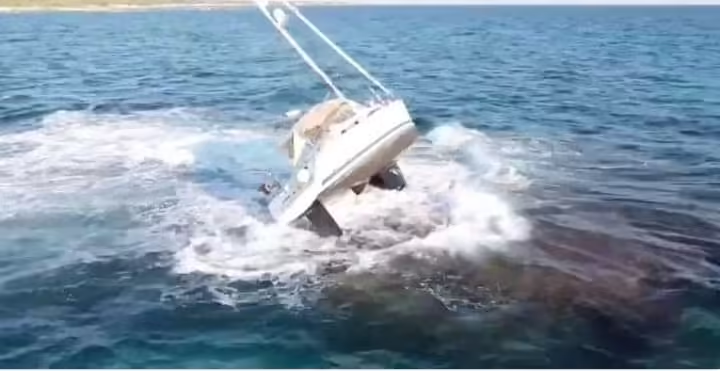If my boat were to capsize, it would be a terrifying and dangerous situation, but my actions would need to be calm, deliberate, and focused on survival. Having a plan for such emergencies is critical, and this is how I would imagine responding.
First, immediate safety would be my priority. If I were thrown into the water or trapped under the overturned boat, I would focus on staying calm to avoid panic. Panic can lead to rapid breathing, which wastes energy and oxygen, especially if caught under the hull. If under the boat, I would try to orient myself, find an air pocket if necessary, and then locate the edge to swim out from under the boat and reach the surface.
Once on the surface, the next goal would be to ensure that everyone with me is safe. I’d quickly assess the situation to see if anyone is injured or needs assistance. In a capsizing incident, people can easily become disoriented or tangled in ropes or debris. So, I would help whoever needs it, ensuring everyone is wearing their life jackets properly. If someone were without one, I’d try to retrieve a life jacket from the floating debris or the capsized boat.
Next, I would stay with the boat unless there was an immediate and clear reason to swim to safety. A capsized boat is still easier to spot from a distance than a person floating alone in the water. Staying with the boat would also increase our chances of rescue. I’d try to climb onto the hull if possible, to get out of the water, which would conserve energy and reduce the risk of hypothermia, especially in colder waters.
If the boat had emergency equipment, I’d attempt to access it. Many boats have emergency supplies such as flares, a waterproof radio, or a whistle that could signal for help. Depending on the situation, I’d fire a flare or try to call for rescue on the marine radio. If no such equipment were available, I’d focus on staying visible by waving arms, bright objects, or clothing to draw the attention of nearby boats or planes.
While waiting for rescue, conserving energy would be key. The ocean or lake can sap warmth from the body quickly, leading to hypothermia, so I’d encourage everyone to huddle together if possible, maintaining body heat and staying alert. If any floating debris could offer more support, like a cooler or anything with buoyancy, I’d encourage its use to help people stay afloat or even rest.
Lastly, mental endurance would play a significant role. Keeping everyone calm and hopeful would be important, as panic and despair can lead to poor decisions or wasted energy. Regularly checking on everyone’s well-being, sharing positive thoughts, and focusing on rescue efforts would help boost morale.
In the end, preparation and a clear head would be essential in such a situation. If I could remain calm, assess the situation rationally, and use whatever resources were available, I’d have a much higher chance of ensuring both my survival and that of everyone on board.
